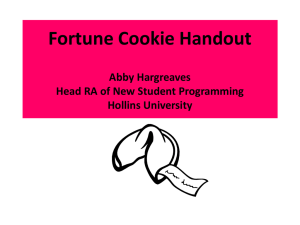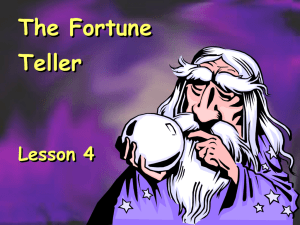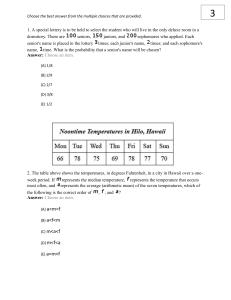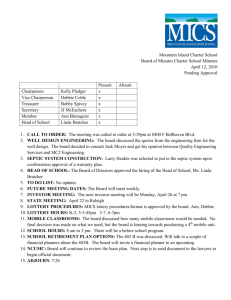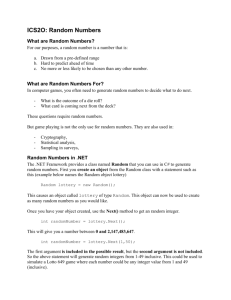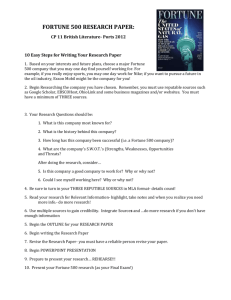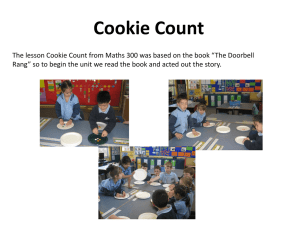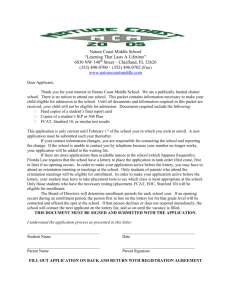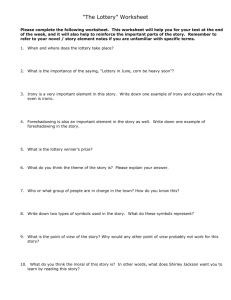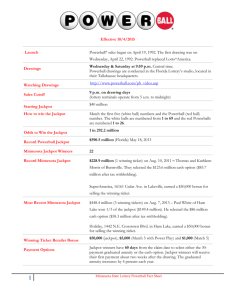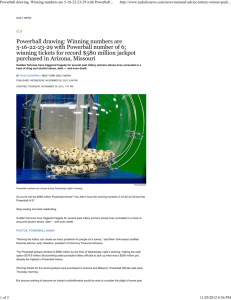Bet on the Fortune Cookie
advertisement
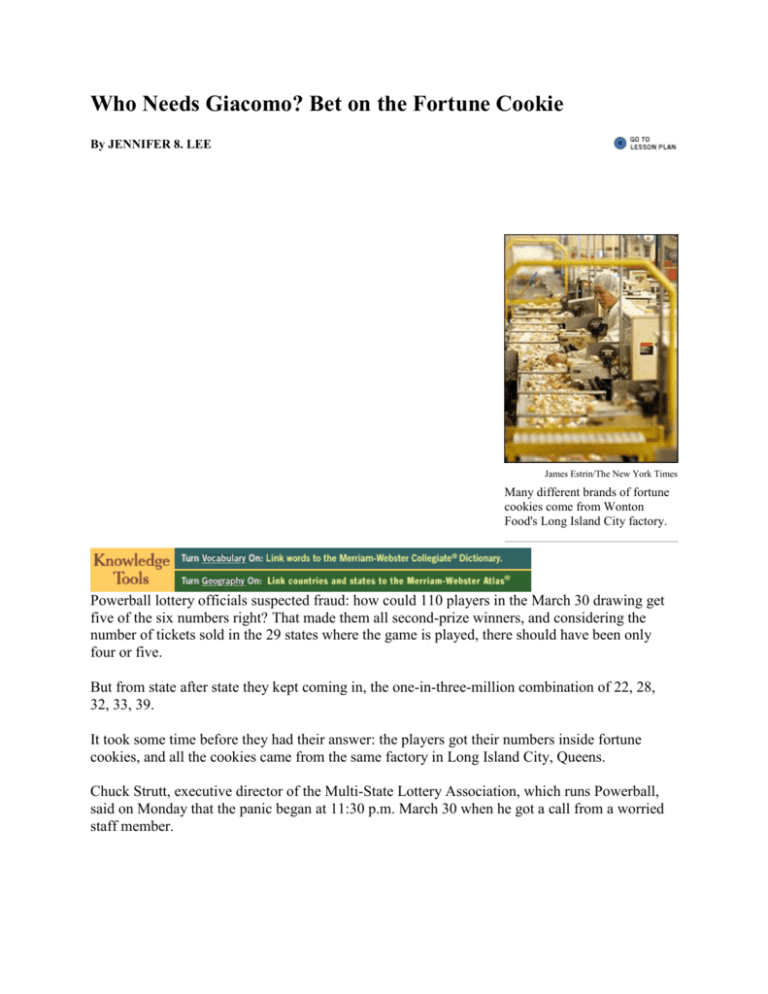
Who Needs Giacomo? Bet on the Fortune Cookie By JENNIFER 8. LEE James Estrin/The New York Times Many different brands of fortune cookies come from Wonton Food's Long Island City factory. Powerball lottery officials suspected fraud: how could 110 players in the March 30 drawing get five of the six numbers right? That made them all second-prize winners, and considering the number of tickets sold in the 29 states where the game is played, there should have been only four or five. But from state after state they kept coming in, the one-in-three-million combination of 22, 28, 32, 33, 39. It took some time before they had their answer: the players got their numbers inside fortune cookies, and all the cookies came from the same factory in Long Island City, Queens. Chuck Strutt, executive director of the Multi-State Lottery Association, which runs Powerball, said on Monday that the panic began at 11:30 p.m. March 30 when he got a call from a worried staff member. The second-place winners were due $100,000 to $500,000 each, depending on how much they had bet, so paying all 110 meant almost $19 million in unexpected payouts, Mr. Strutt said. (The lottery keeps a $25 million reserve for odd situations.) Of course, it could have been worse. The 110 had picked the wrong sixth number - 40, not 42 and would have been first-place winners if they did. "We didn't sleep a lot that night," Mr. Strutt said. "Is there someone trying to cheat the system?" He added: "We had to look at everything to do with humans: television shows, pattern plays, lottery columns." Earlier that month, an ABC television show, "Lost," included a sequence of winning lottery numbers. The combination didn't match the Powerball numbers, though hundreds of people had played it: 4, 8, 15, 16, 23 and 42. Numbers on a Powerball ticket in a recent episode of a soap opera, "The Young and the Restless," didn't match, either. Nor did the winning numbers form a pattern on the lottery grid, like a cross or a diagonal. Then the winners started arriving at lottery offices. "Our first winner came in and said it was a fortune cookie," said Rebecca Paul, chief executive of the Tennessee Lottery. "The second winner came in and said it was a fortune cookie. The third winner came in and said it was a fortune cookie." Investigators visited dozens of Chinese restaurants, takeouts and buffets. Then they called fortune cookie distributors and learned that many different brands of fortune cookies come from the same Long Island City factory, which is owned by Wonton Food and churns out four million a day. "That's ours," said Derrick Wong, of Wonton Food, when shown a picture of a winner's cookie slip. "That's very nice, 110 people won the lottery from the numbers." The same number combinations go out in thousands of cookies a day. The workers put numbers in a bowl and pick them. "We are not going to do the bowl anymore; we are going to have a computer," Mr. Wong said. "It's more efficient."
